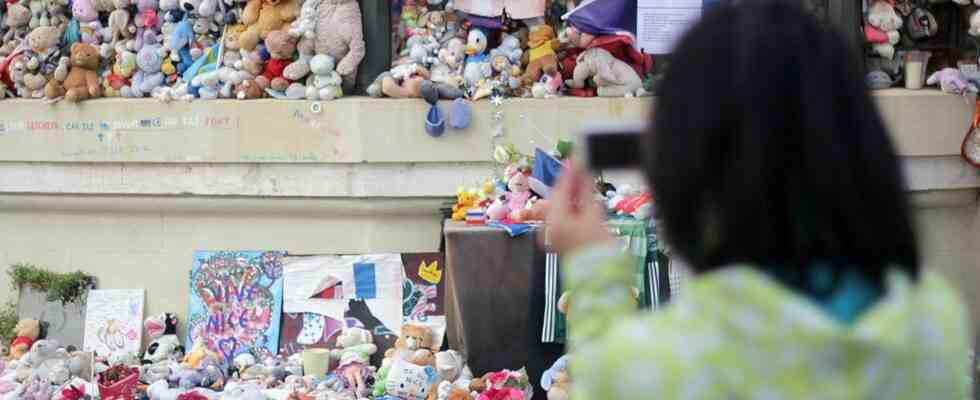The “almost indelible” pain of the victims, of those who lost a loved one that evening on the Promenade des Anglais represents an “obstacle” which prevents them from granting their “pardon” to the accused, underlined the lawyers of the civil parties, Tuesday at the trial of the Nice attack.
For many people present on July 14, 2016 or who had to overcome bereavement afterwards, the passage of time “accentuates the horror” instead of playing its “healing” role, noted lawyer Claudette Eleini.
Forgiveness implies that someone “acknowledges his fault”
Faced with this “past that does not pass”, “only forgiveness allows” to reconnect with “the meaning of life”, without “being confused with oblivion and the excusable”, she believes. But this forgiveness requires a “relation […] between the one who asks for forgiveness and the one who gives it”, he supposes that the first “acknowledges his fault”.
Except that, in the case of the “abominable facts of the Nice attack”, the author, who killed 86 people and injured more than 400 at the wheel of a ram truck, “is not there to ask for it “, having been shot by the police, she also recalled.
In his absence, eight people have been tried since September 5: three for terrorist criminal association and five for arms trafficking (including one in his absence). None is prosecuted for complicity in the attack.
An attitude of “denial”
In these defendants, “we did not perceive any ounce of feeling of responsibility, any suspicion of self-reflectiveness”, apart from a few “prepared words” in advance, regrets Me Claudette Eleini. “None feel guilty,” she adds, lamenting a “reversal of roles” as victims have expressed their feelings of guilt for not having rendered assistance to the injured or not having died instead. from another member of their family.
By this attitude of “denial”, “they forbid forgiveness to themselves, but also to receive that of the victims”, abounds Me Olivia Chalus. “This trial will have shed light on how this crime was committed, but it will leave the question of why unresolved”, leaving the victims “alone in the face of their questions”, still deplores Me Claudette Eleini.
If “it is obviously not the moments of collective amnesia of the accused that will allow the victims” to rebuild themselves, they rely on “the hope of justice to achieve resilience”, also hopes Me Nisrine Bounssir. “Perhaps this trial will allow” certain victims “to reconnect with others, to rediscover what it means to be alive and to grant themselves the right to love and to be loved”, wishes Me Olivia Chalus . The indictment is scheduled for next Tuesday.

